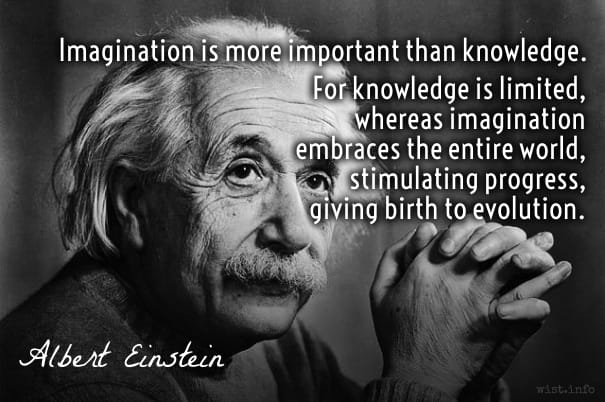As we navigate through the ever-evolving landscape of human progress, we find ourselves transitioning from the information age into what many are calling the age of imagination. This shift represents a profound change in the way we approach problem-solving, creativity, and innovation, bringing in a new era of individual and collective creativity, birthing new forms of economic, ecological, and cultural value.

What is the Information Age?
The information age, also known as the digital age, refers to the period in human history characterized by the widespread access to and reliance on digital technology, particularly the internet.
For the past century we have been defined by an unprecedented flow of information, rapid technological advancements, and the digitization of nearly every aspect of our lives. From the way we communicate and access knowledge to the methods of production and consumption, the information age has fundamentally reshaped our world.
What has caused the Shift in Perspectives?
Ever since the pandemic there has been a shift in our mindsets, what was once important has now shifted to new ideas of what is important. We no longer want to work our lives away, nor do we want to ignore the injustice that has been looked over in the fashion world, but also in the world itself!
In the face of chronic uncertainty, the yearning for trust and stability has emerged as a constant sentiment, steering our collective consciousness towards a new mode of thinking. While the information age equipped us with vast amounts of data and knowledge, it also highlighted the need for a new approach to harnessing this wealth of information.
The previous, algorithmic thinking that defined the information age has given way to a more holistic, imaginative mode of thinking. This shift has been spurred by a growing awareness of the limitations of purely data-driven decision-making and the recognition of the untapped potential of human creativity.
What does the Age of Imagination look like?
In the imagination age, creativity, innovation, and adaptability take centre stage. It is an era where the ability to think critically, empathetically, and imaginatively is highly prized. Instead of being passive consumers of information, individuals are encouraged to become active, discerning creators and collaborators.
The imagination age fosters a culture of experimentation and embracing failure as an essential part of the learning process. Against this backdrop, the need for trust, stability, and genuine connections has become more pronounced than ever.

Adapting to the Age of Imagination
In the Age of Imagination, we are poised to witness a remarkable transformation that will redefine the way we live, work, and interact with the world. Here are five changes that we are likely to see in this transformative era:
- Economic Shift: The Imagination Age will usher in a paradigm shift in the economy, where creativity, innovation, and sustainability will take precedence. Traditional economic models will make way for new, imaginative approaches that prioritize ecological and cultural value alongside economic prosperity.
- Emphasis on Human Connection: As consumer mindsets evolve, there will be a pronounced emphasis on genuine human connections and authentic experiences. The Imagination Age will steer us towards creating meaningful interactions, fostering trust, and nurturing communities that celebrate diversity and creativity.
- Innovative Problem-Solving: The era of strategic imagination will inspire innovative problem-solving approaches across various facets of society, technology, environment, politics, industry, and creativity (STEPIC). Unconventional thinking, interdisciplinary collaboration, and adaptive problem-solving will become the norm.
- Redefined Education: Education in the Imagination Age will undergo a renaissance, placing a premium on nurturing creativity, critical thinking, and emotional intelligence. The focus will shift from systematic learning to cultivating a mindset of curiosity, experimentation, and lifelong learning.
- Business Culture: Companies will have to adapt to thrive in the Imagination Age by fostering cultures that embrace creativity, diversity of thought, and adaptability. This will involve reimagining work environments, product strategies, and consumer interactions to resonate with the values of creativity and innovation.
Upon this exhilarating journey into the Imagination Age, let us eagerly anticipate the remarkable changes it will bring. This transformative era holds the promise of celebrating individualism, nurturing creativity, and embracing the diverse tapestry of human expression. With each step forward, let us revel in the freedom to explore, create, and shape a world where the power of individual imagination ignites collective progress and innovation.

